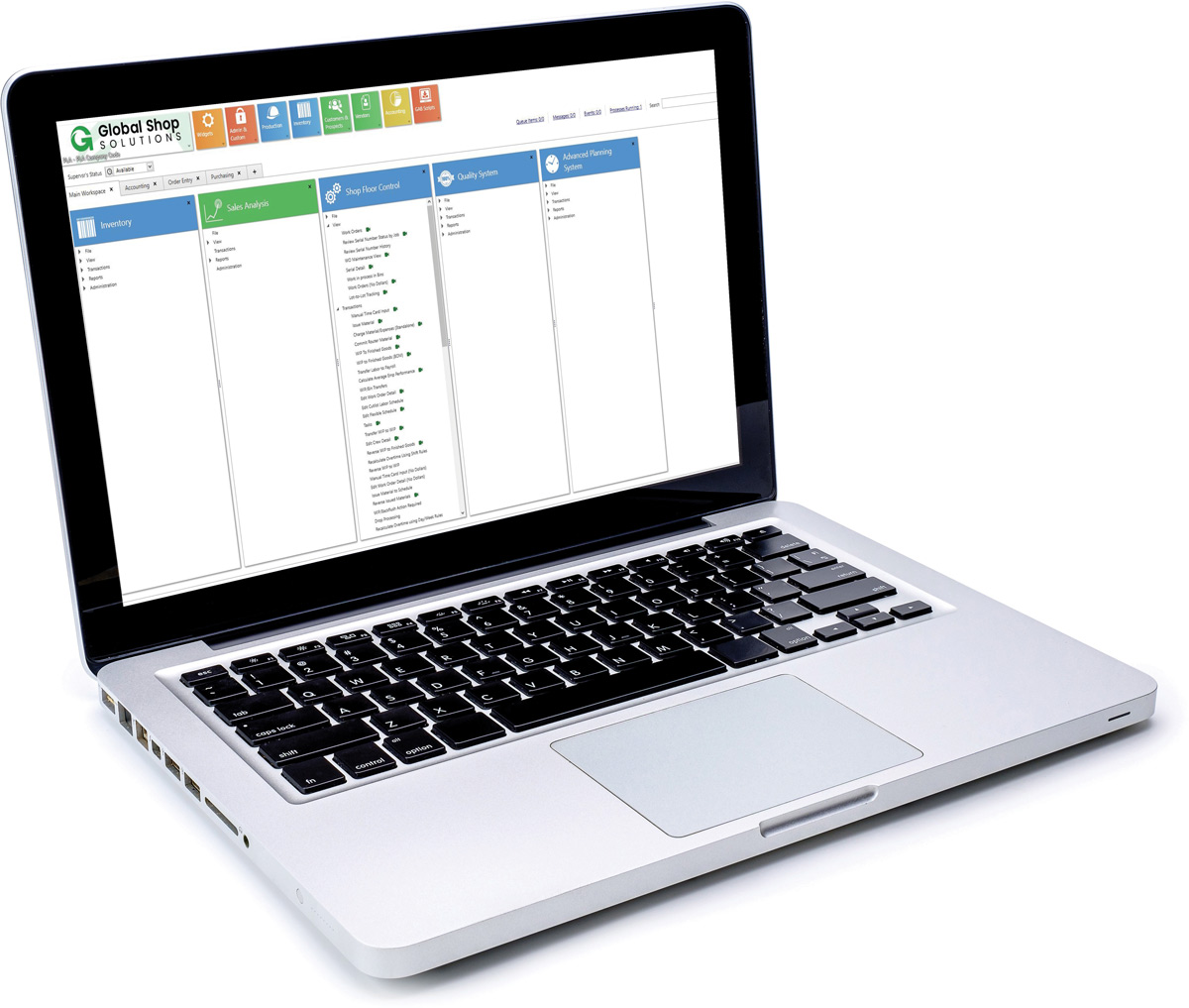
anufacturing elements are inextricably linked to each other, and low performance in one area negatively impacts all others. The “Great 8” essentials consist of the following:
- Move parts through the shop quickly and efficiently. Having access to real-time production data facilitates fast, efficient movement of jobs through the shop floor. Developing schedules based on true capacity allows jobs to get started and completed on time. Machinists know which jobs to work on now and next, and having the right inventory on hand avoids delays. Electronically importing CAD/CAM, nesting and customer data eliminates time-consuming double data entry. When bottlenecks occur, the data indicates why it’s happening, allowing managers to take prompt action.
- Schedule and deliver on time. Instead of “safe” due dates, achieve the ability to tell customers when jobs will be complete and be confident they will be delivered on time.
- Know your costs. Accurate job costing is one of the most important activities in a manufacturing business, affecting everything from estimating and quoting to cash flow. Knowing your costs improves estimating and quoting accuracy and lets you generate sales and work orders in minutes rather than hours.
- Maintain accurate inventory. Knowing exactly what you have in inventory and where eliminates the need to hunt for parts before starting a job.
- Control your labor costs. Daily productivity reports help identify problem areas and trend variances so corrective action can be taken before a problem takes over. Accurate scheduling reduces overtime costs because jobs get completed on time. Downtime costs decline because shop floor personnel always know which job they should be working on.
- Get quality right. Track, measure and analyze the sources of quality problems.
- Serve customers the way you want. In today’s mobile manufacturing environment, fast, responsive customer service creates a real competitive advantage.
- Grow sales. As a manufacturing business, the ability to deliver on your promises is your biggest selling point. When you give customers a due date and follow through every time, it builds trust. When you deliver quality parts on time every time, sales increase.

The biggest reason companies fail to attain the Great 8 is that they’re using outdated manual data collection to manage the shop floor—handwritten timecards, manual spreadsheets and tracking inventory by hand. If sales reps are frequently walking down the shop floor to hand-count parts in inventory before confirming a job, it’s difficult to efficiently serve customers. And, when the same problems occur repeatedly, frustration increases, tempers can rise, and a culture of blame rather than accountability takes over.
 The biggest reason companies fail to
The biggest reason companies fail toattain the Great 8 is that they’re using outdated
manual data collection.

Achieving the Great 8 starts with proper ERP software. Global Shop Solutions’ offering is designed for small to midsize manufacturers and digitally tracks, measures and organizes performance data, providing shop floor visibility for all critical aspects of the shop.
Automating manual processes enables all employees to work more efficiently and become more productive. Costs and waste decline while sales, margins and product quality go up. Everything comes together in one integrated system so that users really can deliver a quality part on time every time.
Global Shop Solutions can provide a package of more than 25 software applications. Some of the most used are Planning & Scheduling, Inventory, Job Costing Accounting, Quality Control, Shop Floor Data Collection, Sales, and Customer Relationship Management.

ERP software provides a complete business management system designed to increase sales. Scheduling jobs more efficiently lowers setup and labor costs, improves throughput, maximizes capacity, and increases on-time delivery. These outcomes improve estimating and quoting, and efficient scheduling also reduces the time spent putting out fires on the shop floor, allowing more time to focus on generating new business and increasing sales.
For those struggling to grow sales, ERP might be the tool that runs the shop floor so company leaders can focus on developing new ideas, new products and new customer relationships.